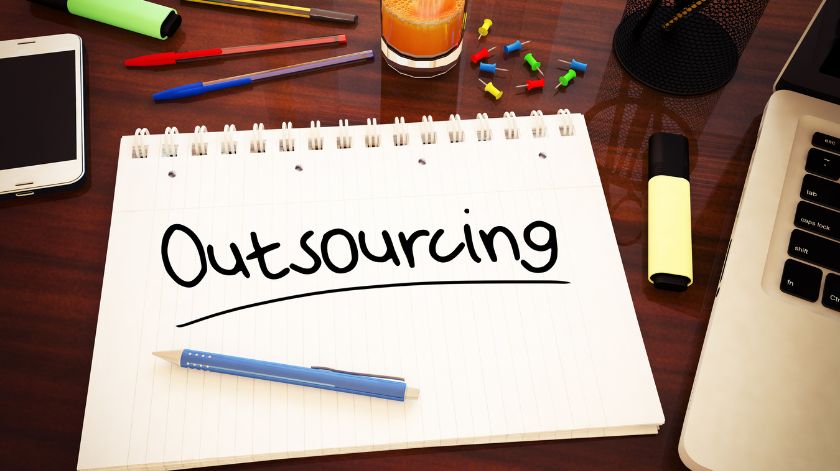Running a small business is challenging and exciting. You have to be creative, fast on your feet, and ready to take risks. But it’s also stressful and that stress can come from financial concerns. If your business isn’t making money or you’re behind on bills and loans, it can be hard to stay motivated. Fortunately, there are some simple ways that you can improve the financial health of your small business:
Write Down Your Financial Goals
 If you’re having trouble staying on track with your finances, take some time to write down your financial goals. Writing down your financial goals is important because it helps you visualize what you want and gives you a sense of direction. You should also have a plan in place that outlines how each goal will be reached, including the steps necessary for success. When setting financial goals, be as specific as possible. Identify exactly what you want to achieve, such as increasing your revenue by a certain percentage or reducing your expenses by a specific amount. This will help you stay focused and motivated. Make sure your financial goals are realistic and achievable. Setting unrealistic targets can be discouraging and may lead to disappointment. Consider your business’s current financial situation, market conditions, and other factors that may affect your ability to achieve your goals. Not all financial goals are created equal. Prioritize your goals based on their importance to your business and your ability to achieve them. For example, reducing your expenses may be a more urgent goal than increasing your revenue if your business is struggling with cash flow. By being specific, setting realistic targets, breaking down your goals, prioritizing them, setting a timeline, and being flexible, you can create a roadmap for achieving long-term success. Regularly reviewing your progress and adjusting your strategy can help you stay on track and achieve your financial goals.
If you’re having trouble staying on track with your finances, take some time to write down your financial goals. Writing down your financial goals is important because it helps you visualize what you want and gives you a sense of direction. You should also have a plan in place that outlines how each goal will be reached, including the steps necessary for success. When setting financial goals, be as specific as possible. Identify exactly what you want to achieve, such as increasing your revenue by a certain percentage or reducing your expenses by a specific amount. This will help you stay focused and motivated. Make sure your financial goals are realistic and achievable. Setting unrealistic targets can be discouraging and may lead to disappointment. Consider your business’s current financial situation, market conditions, and other factors that may affect your ability to achieve your goals. Not all financial goals are created equal. Prioritize your goals based on their importance to your business and your ability to achieve them. For example, reducing your expenses may be a more urgent goal than increasing your revenue if your business is struggling with cash flow. By being specific, setting realistic targets, breaking down your goals, prioritizing them, setting a timeline, and being flexible, you can create a roadmap for achieving long-term success. Regularly reviewing your progress and adjusting your strategy can help you stay on track and achieve your financial goals.
Hire An Outsourced Bookkeeping
 Outsourcing your bookkeeping is a smart choice for small business owners who want to save time and money while ensuring accurate and reliable financial management. Here are some of the benefits of outsourcing your bookkeeping:
Outsourcing your bookkeeping is a smart choice for small business owners who want to save time and money while ensuring accurate and reliable financial management. Here are some of the benefits of outsourcing your bookkeeping:
- Expertise and Experience: Outsourced bookkeeping services like these small business bookkeepers in Melbourne employ professionals who have expertise and experience in managing finances for small businesses. They have the skills and knowledge to handle tasks such as reconciling bank statements, processing payroll, and managing accounts payable and receivable.
- Cost Savings: Outsourcing your bookkeeping can be cost-effective, especially for small businesses that don’t have the budget to hire a full-time bookkeeper.
- Increased Efficiency: Outsourced bookkeeping services use modern accounting software and technology to manage your finances. This can improve the efficiency of your financial management by automating tasks such as data entry, bank reconciliation, and report generation.
- Scalability: Depending on your company’s demands, you can scale up or reduce your use of outsourced bookkeeping services. For example, if your business experiences a surge in sales, you can easily scale up your bookkeeping services to manage the increased workload.
- Reduced Risk of Errors: Outsourced bookkeeping services are staffed by professionals who are trained to manage finances accurately and efficiently. They use established processes and procedures to ensure that your financial data is accurate and up-to-date.
Diversify Your Cash Flow
 When you’re running a small business, cash flow is the lifeblood of your company. It’s how much money comes into and goes out of your business–and it can be positive or negative. Cash flow affects when you get paid, how much profit you make at the end of each month, and more importantly, whether or not you have enough money to pay employees on time and make payroll tax payments on time (or at all).
When you’re running a small business, cash flow is the lifeblood of your company. It’s how much money comes into and goes out of your business–and it can be positive or negative. Cash flow affects when you get paid, how much profit you make at the end of each month, and more importantly, whether or not you have enough money to pay employees on time and make payroll tax payments on time (or at all).
If cash flow is low during certain times of year (e.g., summer), that might mean that those months are slower than others; if so, think about ways to increase revenue during those months so that it balances out year-round expenses like rent/utility costs, etc.
Understand Your Profit And Cash Flow
 As a small business owner, it’s important to understand the difference between profit and cash flow. While they are both important measures of your business’s financial health, they represent different aspects of your business finances.
As a small business owner, it’s important to understand the difference between profit and cash flow. While they are both important measures of your business’s financial health, they represent different aspects of your business finances.
Profit refers to the difference between your revenue and expenses. In other words, it’s the money you have left over after you’ve paid all of your expenses. Profit is important because it’s a measure of your business’s success in generating revenue and controlling costs. However, profit alone does not necessarily indicate how much cash your business has on hand.
Cash flow, on the other hand, refers to the movement of cash in and out of your business. It’s the cash you have on hand and the cash that is flowing in and out of your business. Cash flow is important because it reflects your business’s ability to pay its bills, meet its obligations, and invest in growth.
It’s possible for your business to be profitable but still experience cash flow problems. For example, if you have a large accounts receivable balance, you may have significant revenue on paper but not enough cash on hand to pay your bills. Alternatively, if you invest heavily in inventory or equipment, you may have a negative cash flow for some time even if your business is profitable.
Get A Handle On Taxes
 It’s important to keep a close eye on your small business’ finances, but it’s equally important to be aware of how taxes affect those numbers. Taxes are an unavoidable expense for most small businesses–and even if you don’t pay them yourself, they can still take a bite out of your bottom line by reducing the remaining profit after costs are paid.
It’s important to keep a close eye on your small business’ finances, but it’s equally important to be aware of how taxes affect those numbers. Taxes are an unavoidable expense for most small businesses–and even if you don’t pay them yourself, they can still take a bite out of your bottom line by reducing the remaining profit after costs are paid.
If you’re running a profitable company and paying taxes. However, if you’re not making enough money yet or struggling through tough times (and most startups do), then knowing how much tax burden is coming down the pike will help ensure that both cash flow and morale stay strong throughout the year.
Assess Your Credit And Debt Load
 Before you can improve your financial situation, it’s important to understand what debt and credit mean. Credit is the opportunity to borrow money from a lender, such as a bank or other financial institution. When you take out a loan for something like a car or home, this is considered “good” debt because it helps increase your wealth by allowing you to purchase something that would otherwise be inaccessible.
Before you can improve your financial situation, it’s important to understand what debt and credit mean. Credit is the opportunity to borrow money from a lender, such as a bank or other financial institution. When you take out a loan for something like a car or home, this is considered “good” debt because it helps increase your wealth by allowing you to purchase something that would otherwise be inaccessible.
Debt is the obligation for repayment of borrowed funds, money owed on loans or lines of credit. There are two types: good and bad debt; however there’s also a “grey area” between these two categories where some debts may fall into neither category (more on this later).
Learn When To Use Credit Cards And When To Pay Cash
 If you can’t afford to pay cash, a credit card is a way to go. It’s important that you only use your credit card if you can pay off the balance in full each month. This will help build your credit score and avoid being charged interest fees on purchases.
If you can’t afford to pay cash, a credit card is a way to go. It’s important that you only use your credit card if you can pay off the balance in full each month. This will help build your credit score and avoid being charged interest fees on purchases.
Credit cards are also useful for earning rewards like cash back or airline miles when shopping online, which can add up over time. If all else fails and no one accepts cash payments anymore, you can always use your card as collateral at an ATM if there isn’t one nearby–just be sure that any fees associated with withdrawals won’t negate any savings from using a debit card instead of carrying around large amounts of cash or checks
Cut Costs Wherever You Can
 Managing your small business finances is all about finding ways to cut costs wherever possible. Here are some tips for cutting costs and improving your bottom line:
Managing your small business finances is all about finding ways to cut costs wherever possible. Here are some tips for cutting costs and improving your bottom line:
- Re-evaluate Your Expenses: One of the first steps to cutting costs is to take a closer look at your expenses. Identify areas where you can reduce expenses, such as rent, utilities, and office supplies.
- Reduce Overhead: Reducing your overhead can be a great way to cut costs. Look for ways to reduce your office space, such as sharing office space with another business or allowing employees to work from home.
- Save on Inventory Costs: Inventory costs can be a significant expense for small businesses. Look for ways to reduce inventory costs, such as using a just-in-time inventory system or negotiating better deals with suppliers.
- Monitor Your Spending: Monitoring your spending is crucial to managing your finances effectively. Use accounting software to track your spending and identify areas where you can cut costs.
Small businesses can improve their finances with these key tips The tips in this article are designed to help you improve your business finances. They’re easy to follow and focused on improving cash flow, profits, and credit scores. If you follow them, they will help make your small business more profitable and more attractive to lenders.
You may be able to use some of these tips right away while others will take longer because they require additional planning or investment before they begin paying off in terms of improved financial performance.
Conclusion
If you’re looking to improve your small business finances, it can be helpful to think about what kind of impact each decision will have on your bottom line. For example, if you decide to hire more staff or invest in new equipment, these investments will likely have an immediate impact on your finances but they may also lead to higher profits over time as well. On the other hand, if you choose not to spend money on additional resources when they are needed–such as hiring someone who could do part-time work while continuing full-time responsibilities yourself then this could mean lower profits over time as well as higher stress levels due to increased workloads and risk of burnout.


